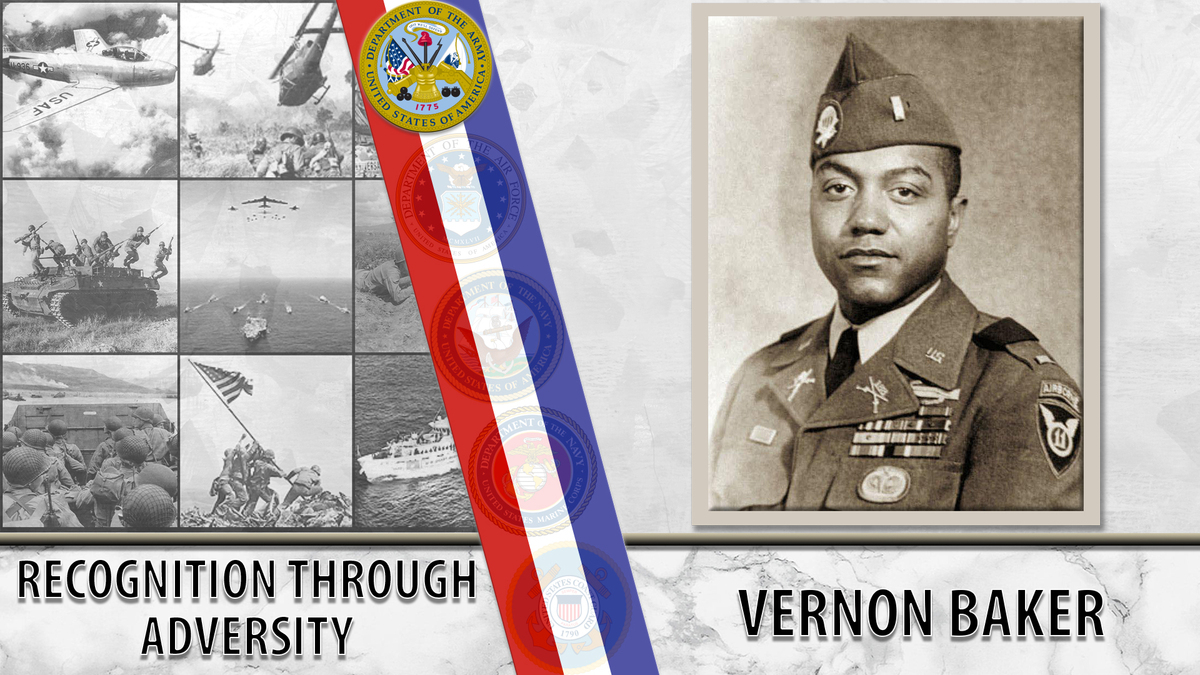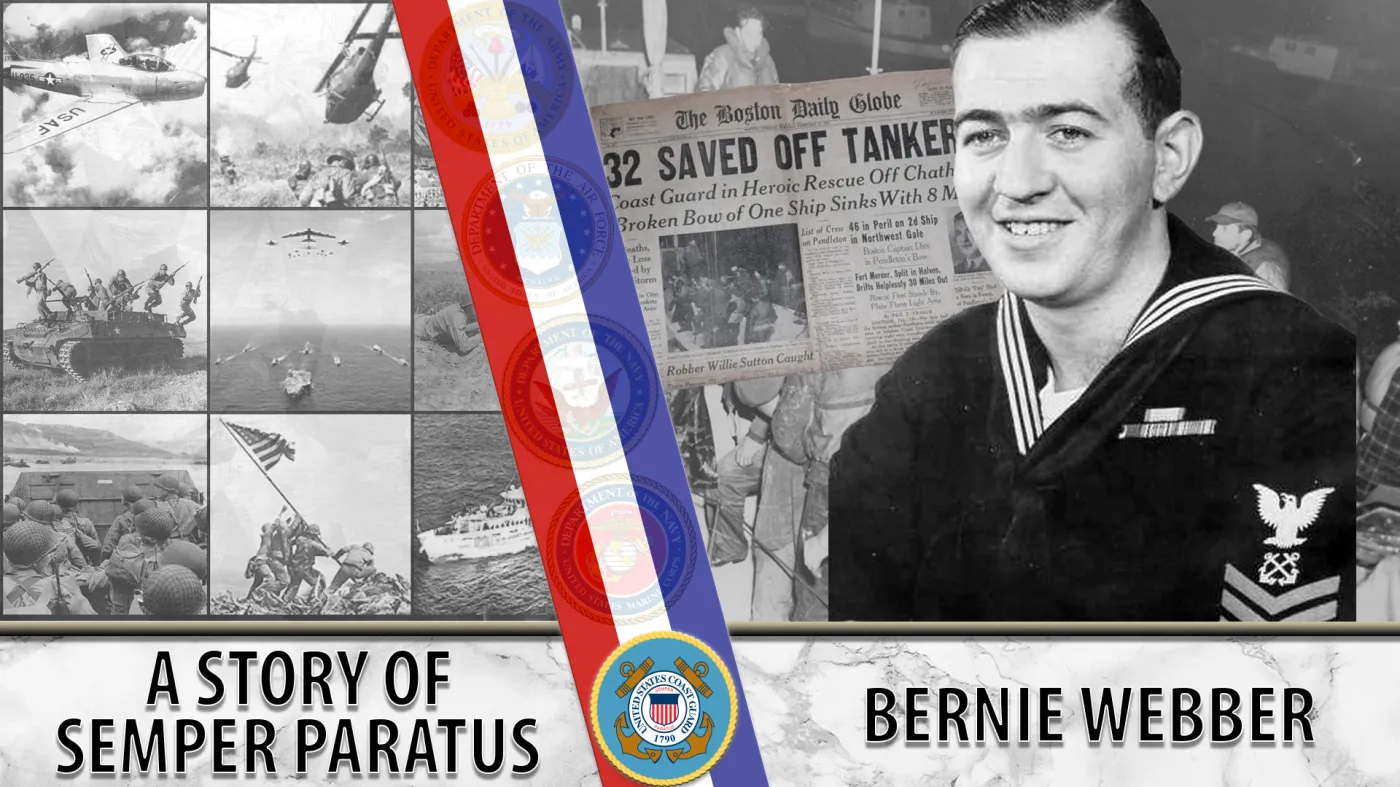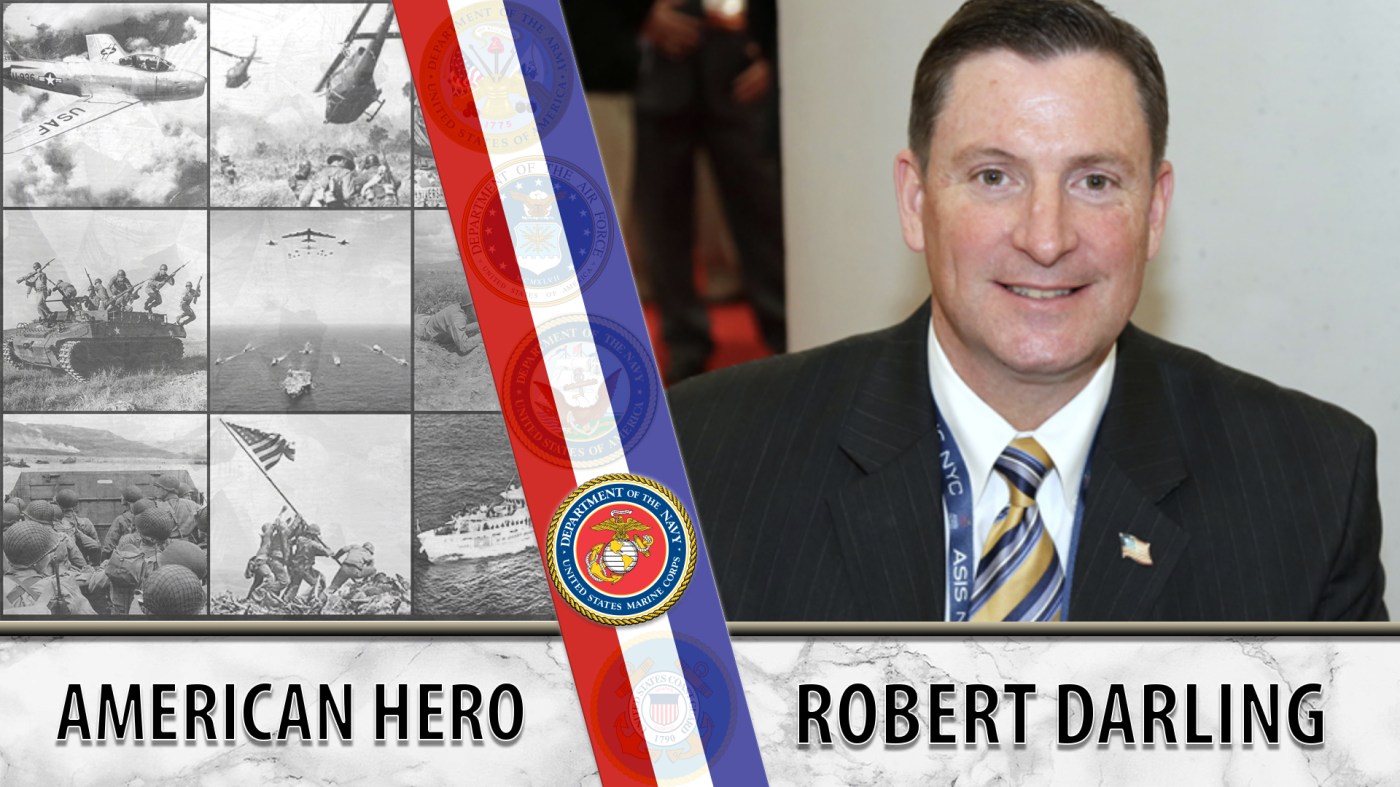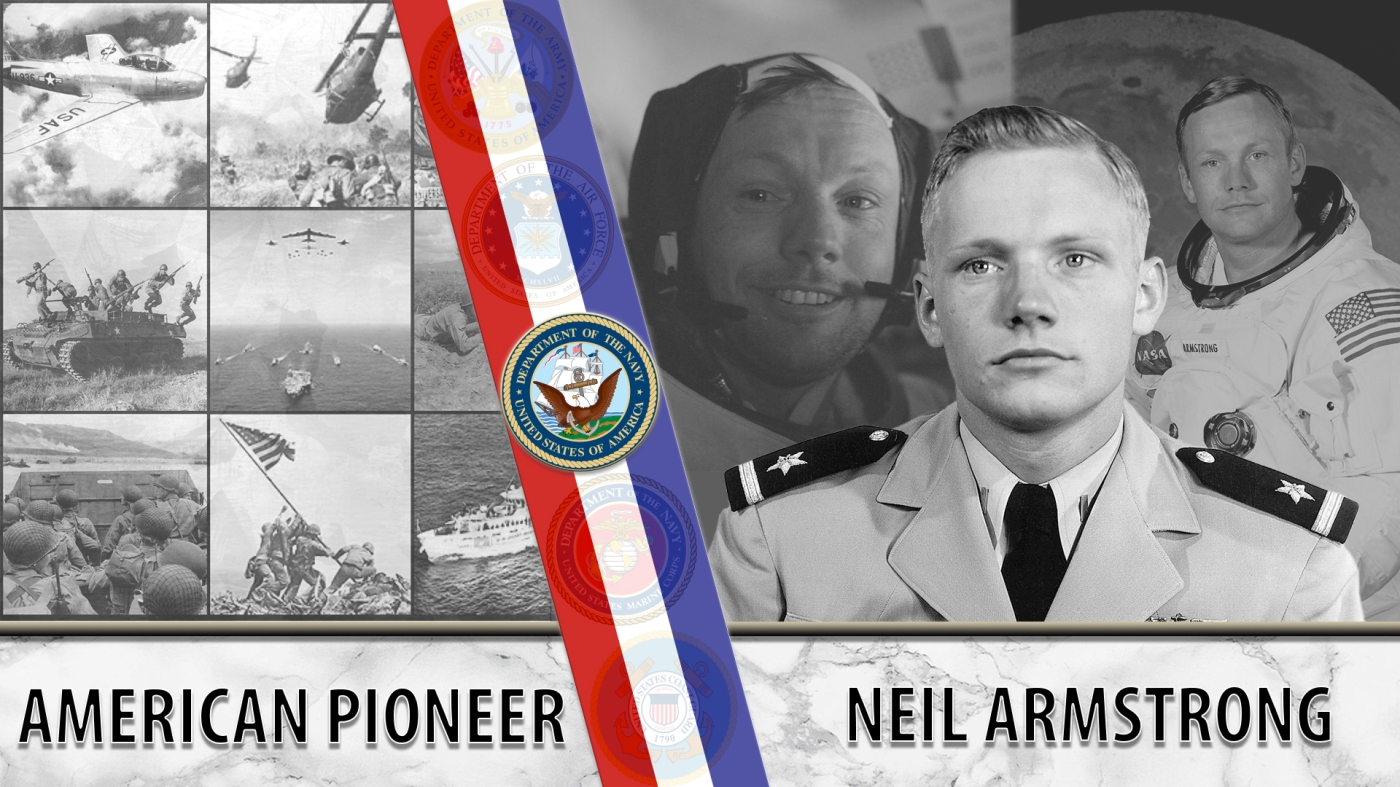African Americans fighting in World War II dealt with combat at their front and Jim Crow at their rear. But many fought anyway, and put their lives on the line for their country, including Vernon Baker.
Baker was born in Cheyenne, Wyoming. Starting at age four, he lived with his grandparents after the death of his parents. He joined the Army in April 1941 after being turned away by the first recruiter he approached. The man had stated, “We ain’t got no quotas for you people.” Baker was determined, and after a few months, another recruiter accepted him.
Baker recounted experiencing racism, having had to shop for supplies in the “black stores.” He trained at Fort Wolters, Texas, stating that “segregation hit me full in the face.” He left Texas after a near-altercation at being told his place was at the back of the bus. Later, he transferred to Fort Huachuca, Arizona, where he was promoted to supply sergeant. The Army, at the time, was recruiting black officers. Still, Baker was not interested because, as a supply sergeant, he knew he had a good thing. The Army had other ideas, and Baker went to Fort Benning, Georgia, for Officer Candidate School.
After OCS, Baker and his fellow black second lieutenants found out they were going to war.
In June 1944, Baker and the 92nd Infantry Division – an entirely black division – were sent to Italy. He was wounded early on, during a night patrol, and then got sent to the hospital in Pisa. When he recovered, he returned to his unit.
On April 5, 1945, only a short time returning to duty, Baker led his heavy arms platoon to Castle Aghinolfi, a German bastion in a region known as the Gothic Line.
Baker lost six men going up the first hill. While ascending the second hill, they found and then severed communication lines. The platoon made it to the top and found a steep and unnavigable drop. It was not until a German soldier popped out from behind a brush that Baker could see a path. The German lobbed a hand grenade, a dud, before Baker shot him. Baker went down the path alone and came across a concealed dugout. He dropped a grenade into the dugout and killed everyone that came out. While Baker was climbing back out of the draw, enemy machine-gun and mortar fire took out several of his soldiers. Two-thirds of his platoon were either killed or wounded. During their retreat, Baker destroyed two machine-gun positions.
That night, Baker took out a total of nine enemy soldiers, three machine-gun positions, an observation post and a dugout. The next night, he volunteered to lead a battalion advance back toward their division objective.
For his actions, Baker’s fellow soldiers nominated him for the Distinguished Service Cross. They believe it should have been a Medal of Honor, but African Americans did not receive the award during that time. About 50 years later, a study commissioned by the Army found discrepancies concerning those not awarded the medal. Baker endured racism for years, and many felt that not receiving the highest recognition for his deeds was just one more example. He was the only living, black World War II soldier to receive the Medal of Honor.
Vernon Baker died in 2010 and is buried at Arlington National Cemetery.
We honor his service.
Writer: Jessica Davis
Editor: Essence McPherson
Fact Checker: Brett Raffish
Graphics: Danielle Kleppe
Topics in this story
More Stories
Bernie Webber led one of the greatest Coast Guard rescues in history that was later chronicled in the book and movie, “The Finest Hours.”
As the events of 9/11 unfolded, Marine Veteran Robert Darling served as a liaison between the Pentagon and Vice President Dick Cheney in the underground bunker at the White House.
NASA astronaut Neil Armstrong was the first person to walk on the moon. He was also a seasoned Naval aviator.







Very good article,a great Solider!!!!!!!